-
Tips for Conducting a Waste Audit at Your Business
For businesses that want to have a greener image and cut operating costs by reducing the amount of waste they produce, waste audits are an essential tool. If you’re planning to conduct an audit for waste in Atlanta , then keep reading for some helpful tips.
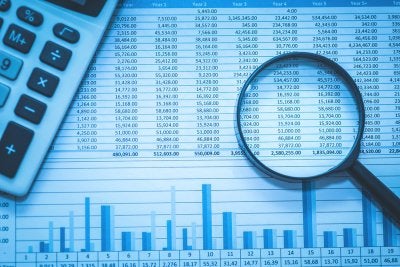
Set Your Goals
When preparing for a waste audit, it’s a smart idea to determine what you would like to learn from the process. Typically, waste audits are used to identify how much of what types of waste are being generated, the effectiveness and efficiency of current waste management practices, and areas for waste reduction.
Plan for Safety
As exciting as it is to find new ways to waste less and recycle more, it’s important not to dive into the waste audit process without learning how to conduct the audit safely. Learn what safety precautions, such as vaccinations and personal safety equipment, are necessary for the type of waste you will be dealing with and ensure that your team is educated and prepared.
Create a System
To conduct your waste audit accurately and efficiently, you can benefit from mapping out the steps you will take. If you’re not sure where to start, then do a web search for waste audit templates that can provide you with a foundation to build from. Next, create a step-by-step plan and be sure that everyone on the waste audit team understands the process you will use and the audit’s objectives.
Scrutinize the Data
The information that you obtain from the waste audit can be invaluable for making big changes in your business’ waste generation. For this reason, you should take the time to analyze all the data from different angles to get the most benefit from the process. Lastly, be sure to organize the information and keep it available, so that you might refer to it and evaluate your company’s progress the next time you conduct a waste audit.
-
Strategies for Going Green at Your Business
Choosing eco-friendly products, recycling, and reducing waste in the workplace can be good for both the environment and your bottom line. If you’re hoping to go green at work and cut down on your company’s waste in Atlanta , then watch this video for some smart strategies to consider.
You can start going green by looking for non-toxic cleaning and bathroom products, which can promote better indoor air quality. To save money on operational costs, consider switching to energy-efficient light bulbs, motion sensor lights, and on-off sensors for faucets. Next, to reduce waste, avoid using disposable utensils, plates, and cups in your break room. Finally, look into what incentives for going green are available for businesses in your area.
-
Could Waste Be the Newest Source of Energy?
If you’re like many people who are concerned about cutting back on waste near Atlanta , then you may be interested in learning what one city is doing to make the most of the trash it generates. Watch this video to get an introduction to something called waste-to-energy.
The local government in Alexandria, Virginia partnered with an energy corporation to power more than 20,000 homes with a process called waste-to-energy. Despite recycling efforts, there is still a lot of waste that ends up in dumpsters. This process allows the area to burn their garbage for energy, rather than dump it in a landfill. Through innovation, they have stayed ahead of EPA regulations over the years, for example with new filtration technology for their furnaces, making this waste management process a promising one.
-
Advice for Restaurants Who Want to Cut Waste
When it comes to maximizing the profits for your business, efficient waste management is critical. If you are a restaurant owner who wants to cut down on waste in Atlanta, then keep reading for some advice on getting started.
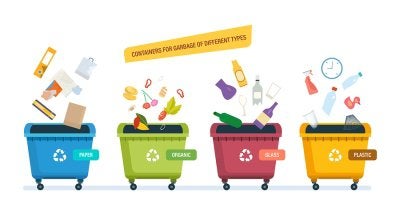
Get an Audit
Waste analytics, or data regarding waste, can be invaluable when it comes to cutting down on the amount of trash that ends up in your restaurant’s dumpsters. For this reason, one of the first steps you should take to reduce waste is to schedule an audit. You can go through the auditing process yourself or hire a company to come in and evaluate your establishment for you. The results of the audit will give you a better idea of how much waste your restaurant is creating, what types of waste it’s generating, and what your greatest areas for improvement are.
Start Recycling Programs
Following the waste audit, you may find that more recyclable materials end up in your garbage than you would have guessed. To help reduce your establishment’s overall waste, consider starting some recycling programs. For example, you can begin food recycling so that your food scraps can be transformed into compost and animal feed, and you can place recycling bins in a few areas of your restaurant so that materials like paper, plastic, and aluminum can make their way to a recycling plant instead of a landfill.
Examine Purchasing Habits
While it’s important to address what you do with the waste that’s produced, don’t forget to consider if too much product is being brought into your restaurant, as well as how your employees are using ingredients and materials. Take a close look at your purchasing habits to learn if there are areas where you can cut back or convert to recyclable materials. Finally, investigate how products are being used in your restaurant. You may find that materials are being utilized inefficiently or that you can cut back on waste by using 1 ingredient where you currently use 3 similar ones.
-
FAQs About Food Recycling
For many companies, a significant amount of the food they purchase ends up in dumpsters. If you’re looking for a better alternative to throwing away your business’ food waste near Atlanta , then you may benefit from learning about a process called food recycling. Read on to learn the answers to frequently asked questions about this waste management option.

What is food recycling?
Tons of food that can be recycled are sent to landfills every year, and this is a trend that is both wasteful and expensive. Food recycling is much like it sounds and involves the recycling of food waste. If your business produces a lot of food waste, then you, your consumers, and the environment may all benefit if you were to adopt a food recycling system.
What are the benefits of food recycling?
There are many good reasons to get on board with food recycling. First, this process can reduce waste management costs and support zero waste initiatives. Also, food recycling benefits both consumers and companies by improving purchasing discipline and inventory control, because less product wasted means less spending for businesses and lower prices for customers. Additionally, cutting down on food waste benefits the environment by keeping more methane-producing garbage out of landfills and reducing the amount of food that needs to be produced.
Who should use food recycling?
While there is a lot of potential for food recycling, the food service industry is most impacted. Companies that produce or purchase food can direct food waste into the recycling stream instead of the dumpster. From there, the waste can be used to produce animal feed and compost. Also, industrial facilities can use food waste to generate electricity, using the natural gas produced by a process called anaerobic digestion.
What happens after food is recycled?
Companies in the food industry can later benefit from sending their food waste into the recycling stream. For example, the resulting animal feed and compost can be used to produce animal products and crops, and the electrical power generated from anaerobic digestion can provide electrical power for food processing facilities.
-
Dealing with Temporary Waste from a Remodeling Project
When you are planning on remodeling your home, you may be faced with the challenging task of determining how to dispose of your excess demolition waste and construction materials. A dumpster rental near Atlanta may provide you with the ideal solution during your renovation. Since your remodeling project will only produce a temporary volume of waste, you can rent a dumpster for the timeframe of your project.
Dumpsters are perfectly suited for disposing of renovation waste. Depending on the scope of your project, you can rent a compact dumpster or a large, roll-off container. Your dumpster will be delivered directly to your site, so you will not have to worry about transporting waste from your property. At the end of your project, your team of waste management professionals will be there to pick up your dumpster rental and haul it to the appropriate processing facility. If you are getting ready for an upcoming renovation, now is a great time to receive a quote for dumpster rental prices.
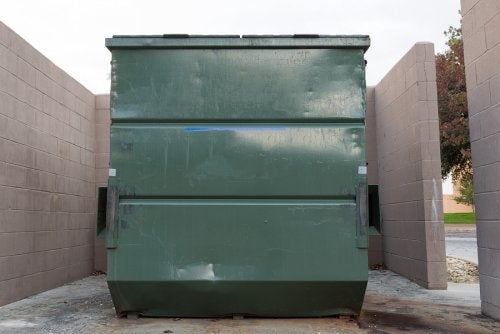
-
Taking a Closer Look at Ferrous Waste Recycling
Ferrous waste is a term that is used to describe any type of scrap that is primarily composed of iron or steel. If your business produces large amounts of ferrous waste, consider bringing your items to a facility that offers scrap metal recycling in Atlanta . Metal recycling can be used to repurpose ferrous waste and create brand new items. Your recycling center can even help you to create a waste management plan that provides you with scheduled pickups for your bulk ferrous waste. To help you implement a recycling plan for your business, read on to take a closer look at what you need to know about ferrous waste recycling.
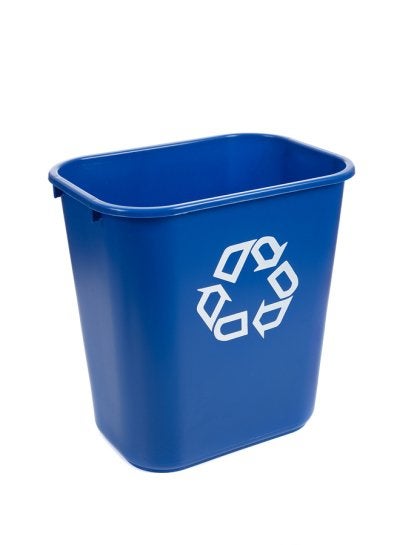
Ferrous waste comes from a variety of sources.
Ferrous waste can be obtained from many of the most common objects and items that we use every day. Among the most common sources of ferrous scrap metals include old automobiles. Along with junk cars, ferrous waste also comes from household appliances, steel structural beams, and old transportation equipment.
Ferrous waste is among the most commonly recycled materials.
In fact, ferrous waste makes up the bulk of all of the various types of materials that are recycled in the United States. In a single year, ferrous waste recycling facilities process up to 72 million metric tons of iron and steel. Due to its renewable and reusable properties, ferrous scrap is a valuable part of the recycling industry.
Ferrous waste must be processed at a dedicated facility.
If you have extra scrap metal laying around your home or commercial property, you will need to bring your items to a facility that has the equipment required to process these types of materials. In order to process ferrous waste, a facility needs to put the raw materials into a powerful shredder. Once the iron or steel has been shredded, it can be melted down in order to create brand new products. Your recycling facility may also sort different types of ferrous waste into categories before it is shredded.
-
Why Should You Recycle Electronics?
In today’s digital age, our electronic devices are constantly evolving and adapting to include new features and hardware. When you are ready to dispose of a computer, cell phone, or other electronic device, think twice before you toss your item into the dumpster. A company that offers recycling serving Atlanta can help you recycle all of the e-waste that is generated by your home or business. Electronic recycling bins are designed to safely house electronic waste until it can be processed at a designated facility. Let’s review why recycling is so important when you are getting rid of your old electronics.
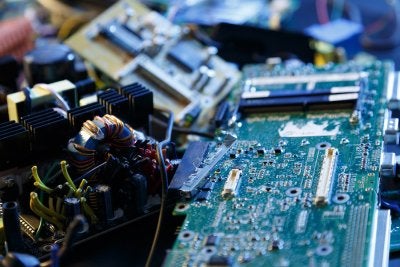
Provide Important Materials
One reason that e-waste recycling is so important is that your old, outdated electronic items may contain valuable materials that can be used in various industries. Cell phones, computers, and other electronics are filled with precious metals that have been mined out of the earth. Rather than depositing these materials in the trash, you can give them new life by sending them to a recycling facility.
Prevent Landfill Overflow
Our landfills are quickly getting filled up with electronic waste, along with many other types of items. By recycling, rather than tossing, your electronic waste, you can help to conserve the limited space that is still available in our country’s landfills. Since computers and other devices are made out of non-biodegradable materials, they will not be able to decompose after they have been thrown in the trash.
Avoid Toxic Pollution
Along with their precious metals and other valuable materials, electronic items often contain large amounts of toxic substances. After an electronic device is tossed in the trash, its toxic components will start to leech into the surrounding environment. A main component of the e-waste recycling process is to safely remove and dispose of any toxic chemicals or substances. When you take the time to donate your old electronics to a dedicated recycling facility, you can rest assured that you are doing your part to protect the planet from pollution.
RECENT POSTS
categories
- Uncategorized
- Waste Management Atlanta
- Waste Disposal and Recycling
- Hazardous Waste Disposal
- Chemical waste removal
- solid waste removal
- R3 Program
- Sustainable Organizations
- Sustainable Waste Removal
- Commercial Waste Removal
- Materials Management Program
- Dumpster Rental
- Roll Off Dumpsters
- Construction Site Waste Removal
- Sustainability
- Recycling in Atlanta
- Industrial Recycling
- Industrial Waste Removal Services
- Southern Waste & Recycling
- Waste Removal Atlanta
- Waste Specialists
- Atlanta
- Infographic
- Front Load Dumpsters
- Rear Load Dumpsters
- Reusable Electronics
- Dump Truck Atlanta
- Recyclable Electronics
- Trash Compactors
- Recycling
- Recycling Program
- Office Recycling
- Metal Recycle
- Electronic Waste
